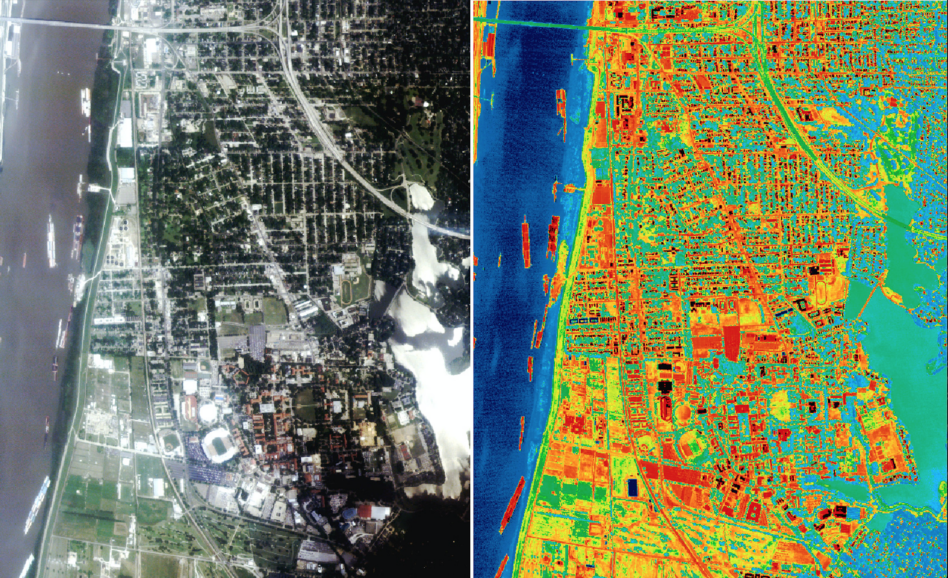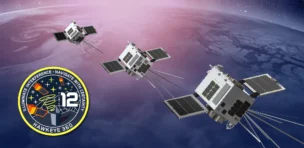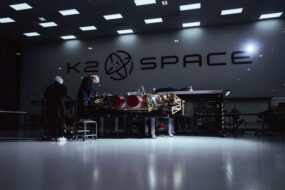Last week, London startup Satellite Vu closed a £15 million ($20.7 million) Series A, led by Seraphim. Satellite Vu, which raised a ~$5 million seed earlier this year, now has enough capital to finance production of its first satellite.
- Also participating in the Series A: Draper Esprit, A/O PropTech, Ridgeline Ventures, Earth Science Foundation, E2MC Ventures, and Stellar Solutions/Ford Family Trust.
“This enables us to go to space, which is super exciting,” CEO Anthony Baker told Payload. “It will pay for the first satellite and rocket, and give us some runway.” Back-of-the-napkin math suggests each satellite will set the company back ~$15 million.
Satellite Vu’s north star: Measuring heat signatures of buildings with thermal infrared sensors. Think night vision goggles for satellites, but goggles that also work in the daytime. Satellite Vu says each spacecraft will be capable of 10–20 revisits a day. The company is currently testing its sensor on a plane and “downgrading aircraft imagery to look like pseudo-satellite imagery,” according to Baker.
Use cases: They vary. Satellite-gathered thermal data could help round out one’s understanding of economic activity at a factory, the occupancy level of a building, or energy inefficiencies at installations around the world.
- Satellite Vu is focused on selling to ESG funds, companies, and governments. “That’s where our data is going to have the most value,” Baker said.
- The company will offer back-end analytics software that parse through satellite data and relays takeaway reports/insights to end users.
- Satellite Vu will also sell raw information to Earth observation data platforms…or, say, Fortune 500 energy firms with in-house analytics teams.
Roadmap: The first night vision craft is headed to polar orbit in Q4 2022. Satellite Vu plans to soon raise a Series B, which will finance the production and launch of a three-satellite batch into a similar orbit as Starlink. The company’s remote thermometer constellation will concentrate on the most industrious, populous parts of the planet.
For now, though, Satellite Vu is headed to COP26, the UN climate conference that kicks off Sunday in Scotland. Monitoring our changing planet in a new way may just be Satellite Vu’s competitive edge: “Everyone is interested in energy efficiency, net zero, and carbon emissions,” Baker said.




